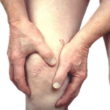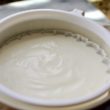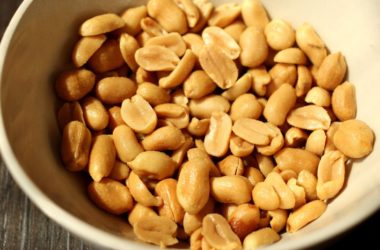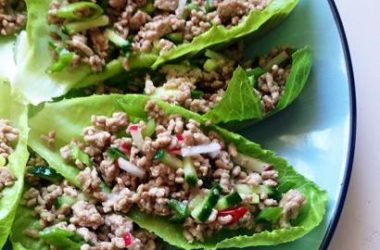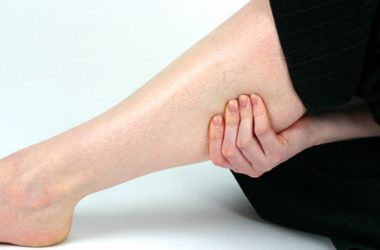Gas pain, belching, and bloating happens when your belly is tight, full, or swollen after you eat. It usually occurs when the muscles in the digestive tract are disturbed or excessive production of gas in the stomach. Aside from making you feel uncomfortable and even add pressure to your belly, it can also make the stomach look bigger. The feeling is actually unpleasant but if you’re going to sum it all up, it is basically a combination of liquid, solid, and gas in the digestive tract.
Here are 8 ways for you to eliminate and even alleviate bloating.
- Determine food intolerances and allergies to avoid them.
It’s not unusual to have food intolerances or allergies. You just need to find out which ones affect you so you will know what to stay away from. Here are a few examples of ingredients and foods that you might want to check out: fructose, wheat and gluten, eggs, and lactose. There are some who are allergic or can’t tolerate gluten which is a type of protein found in barley, wheat, spelt, and other types of grains.
- Consider following FODMAP diet.
The meaning of FODMAP is Fermented, Oligo, Di, Mono-saccharides, and Polyols. This type of diet is discovered to reduce symptoms of those with irritable bowel syndrome such as bloating. If you’re experiencing bloating minus any other digestive problems, try switching to FODMAP diet. Among the types of food that belong in the FODMAP diet are onions, broccoli, cauliflower, beans, pears, wheat, garlic, cabbage, artichokes, apples, and watermelon. Although this type of diet may be hard to follow especially if you’re used to eating a variety of foods, trying out can help ease bloating and other digestive problems.
- Avoid constipation.
Constipation is common to those who are experiencing digestive problems and it can be caused by various reasons. Some studies show that those who are constipated can experience bloating. However, increasing fiber intake can have adverse effects on those who experience bloating or gas which is why you need to be cautious whenever upping your fiber intake. Try exercising more or take magnesium supplements to help alleviate constipation.
- Try using peppermint oil.
If the muscle function in your digestive tract is changed in some way, it can cause bloating. Antispasmodic medications are found to be useful in reducing muscle spasms. The same goes true with peppermint oil. Several studies showed that peppermint oil can actually reduce symptoms in patients with Irritable Bowel Syndrome including bloating. You can get peppermint oil in the form of supplements.
- Don’t eat too much in one sitting.
There are times when the root of the problem is you eating a lot. If you’ve been eating large portions all the time then feel some discomfort after your meals, try reducing your portion size. You can always add another meal if you’re following small portion meals to minimize your hunger. Also chewing your food properly can affect you in two ways. One, it lowers the amount of air that you swallow thereby minimizing bloating and two, you slowly eat thus making you feel fuller faster making you eat less.
- Stay away from beverage and food that produce air or gas.
The two sources of gas in the digestive system are from the bacteria found in the gut and the other is from the air that you tend to swallow when you drink or eat. As a matter of fact, carbonated drinks are the worst offenders. These drinks contain bubbles filled with carbon dioxide that, when it reaches your stomach, will release gas. When you drink using a straw, eating while talking, and chew gum, you are increasing the amounts of air that you swallow. Aside from these, there are foods that are high in fiber that can contribute to your bloat such as whole grains, lentils, beans, and legumes. Consuming too much of fatty foods can also slow down your digestion and emptying the contents of your stomach. This works in terms of satiety and weight loss but it won’t do any good to those who are suffering from bloat.
- Exercise caution with sweeteners.
Chewing gums including sugar-free foods contain sugar alcohols. These artificial sweeteners can be used as substitutes to sugar. However, they might cause digestive problems especially when they manage to reach the bacteria found in the large intestine, where they get digested and turned to gas. Try to skip using sugar alcohols like mannitol, xylitol, and sorbitol. Erythritol, which is another type of sugar alcohol, can be tolerated but only in small doses.
- Take probiotics.
Another source of bloating is the gas produced by bacteria found in the intestine. As a matter of fact there are different types of bacteria in the intestine, and they tend to vary from one person to the next. It is only logical, therefore, to assume that bacteria can contribute to the production of gas in your gut and there are studies that actually back this up. There are clinical trials that showed how some types of probiotics can help with the bloating and gas production in some patients. However, there are other studies that show gas production can be minimized but not bloating. This depends mostly on the type of probiotics used and the person. There are benefits to be gained from taking supplements of probiotics. Although the results may take some time to see, it’s worth being patient.






